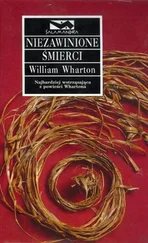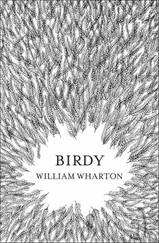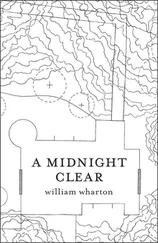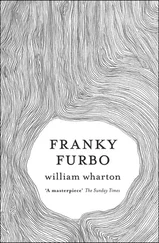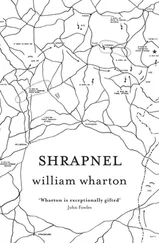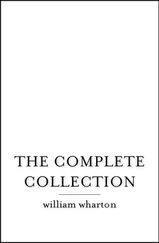The big mistake was renting to the blue-blood sculptor. First, he has the most active social life I’ve ever seen. He’s a stone sculptor, cutting gigantic five-, six-ton blocks of marble or granite. He works hard when he gets the chance but that’s not often. Most times, there are French dukes driving up the alley in limousines, tooling over to watch Claude play at being sculptor. They can’t believe he’s trying to work; only peasants work. They’re titillated seeing Claude, sledge-hammer in hand, goggled, genuine stone dust whitening his face like a clown, staggering around in piles of stone chips.
Maybe the one thing worse than not having enough money is having too much. You get caught up with rich friends and relatives. Then how the hell can you get anything done?
But my big problem is stone dust. Joseph P. Baloney, it gets into everything. Thin, light, like soap powder, it rises from his studio into mine. I run around with pieces of glass wool, putty, plaster, trying to plug holes. Nothing stops this dust. Mornings, it looks as if it’s snowed; all day long there’s a haze. It gets into my paint and into the paintings.
My way of painting involves slow-drying varnish; this floating stone dust is deadly. Altogether – with what’s in the air, what settles on my eyeglasses and what’s getting ground into the varnish – I’m working in deep cream of wheat. My white beard gets so white it glows.
THE BLINDING LIGHT OF NO WHITENESS
DARK LOST IN MEMORY: A DULL CLUMPING
OF FRAGMENTED IDEA CLUTTER GROWS.
Finally I give up. I rent my studio to another painter, a friend of Claude’s. This guy works abstractly, sort of white bumps on white flats; sometimes light purple or green squiggles over these large white canvases, different shades of white, all very subtle. He says stone dust won’t matter.
He’s a social type, too, won’t mind dancing bear to the royalty. I sign him on at eight hundred francs a month. I tell Traude about it; she asks if he’s married. It’s OK with her. Traude’s money almost covers my outgo and the other fourteen hundred francs a month is pure gravy. We definitely have use for the extra money. Trying to paint truly personal paintings, make some kind of a living and be a good husband-father can be almost too much sometimes. All that’s beside living some kind of life for yourself.
So that’s the way we make it. We ourselves live in what used to be a carpenter’s shop. I bought the bail, that’s the lease, for five thousand, and pay eighty bucks a month rent.
It’s a great place for living, eighty-seven square meters, plus a grenier and a cave , that’s an attic and a cellar. When we moved in, I tore everything out except for one center support post. We redid all the windows to make the place weatherproof. Then I drew a plan on paper just as if we were building a house on a lot in Woodland Hills, California. I chalked my plan on the floor directly and started building up walls. The job took six months. Kate was a little worried at first but she likes it fine now.
We have our kids sleeping on platforms. It saves floor space and they don’t have to make beds. There’s a mezzanine-type balcony all around the living room. You can use it to get from one bed loft to the other. There’s a place up there for trains or slot cars when they’re young, stereo sets as they get older. We have a house rule, earphones only; these old nerves can’t take loud music of any kind. Kate agrees, thank God!
I built a fireplace where we can climb in and warm up around the flames on cold evenings. A nest inside a nest.
It’s a terrific place for us to raise a family. Every night, family dinners at a ten-foot-long table I knocked together from a single slab of three-inch-thick mahogany cut from the center of an African tree. The bark is still on the outside edges to remind us where wood comes from. I bought this piece of wood at a sawmill in the neighborhood: weighs over two hundred and fifty pounds; took four of us dragging it up our three flights of stairs. A big heavy table like that can help hold things together no matter what happens, gives some weight to life, keeps it from just flying away.
Evenings, after dishes, we do our sitting, reading, talking, homework, model building, drawing, around that table. This is one fine place to live, love. Our kitchen is smack in the center and open. When you’re in that kitchen, you’re in the command post, can see everything, control our family tree house. Swiss Family Robinson in the center of Paris.
There’s no television, never has been in our family; that’s one reason we ducked out of California. There’s just that big open room for living, eating, sharing; each person in the family has a private place for sleeping and working. Peapods inside peapods; five bedrooms. The plumbing’s tricky but it works most of the time.
I rent our apartment at five hundred bucks a summer to American university professors doing research in Paris. This almost pays the year’s rent. We’re down at our rugged, ragged stone water mill summers anyway.
That’s the way it goes. Christ, if you’re an artist with five kids, two already away at American universities, you have to figure something, somehow. It’s how I make my ratnesting instincts pay off; me the slum landlord of Paris.
I RAGTAG MY WAY THROUGH LIFE:
BORN-AGAIN CRIPPLE: CURSED WITH SOMETHING
EXTRA: A THIRD ARM GROWING BETWEEN
MY EYES: BLOCKING THE VIEW. MAKING
THE FEW SEEM MANY.
Now, in this crazy book it might be easy to get the wrong idea about how my life is lived.
I’m writing a lot about painting, about what happens out on the streets, but my real life, the one I live for, is home with Kate and our kids.
I hardly ever paint past five o’clock, even in summer, and I never paint on Sundays. Lots of Sundays we go to one of the zoos – we all love animals – or we row in the Bois de Bologne or, more often, the lake at the Parc de Vincennes.
I’m home for dinner almost every evening and while we eat we all share what we’re doing. I’m just not writing much about that part of my life here, maybe another book; no, I’ll never write another one, not enough time.
Remember, above all, I’m the nester and this is my home nest. Don’t get confused by the flickerings or you’ll never understand this book, what it’s all about.
Raining today: Paris has too damned much weather. I clean my box and set up for a self-portrait. I do one each year, usually in midwinter; good for winter glump, cheap emotion massage, gets the neurons hopping. I’m working in what used to be Tim’s bedroom before Annie went off to school and Tim took her room. It’s my mini-studio. Actually, I don’t need much space to paint.
Self-portraits are by far the most interesting paintings. Just look at Tintoretto, Chardin, Rembrandt, even David. Active and passive simultaneously, body with a brain seeing a brain through a body; the eye painting the eye seeing the eye. There you have it: what the painter is, what he’d like to be; the way he paints, the way he’d like to paint, all in the same place at the same time. Looking inside yourself must be the hardest – at the same time, the most rewarding – thing anyone can do.
Take Rembrandt. Cocky at first, full of feathers, bearing down, concentrating like a fool, believing in it all. Then, slowly backing off, starting to wonder, letting the brush paint for him; he begins staring in the black hole; keeps painting straight to the end, kisses the wall, falls in; emptiness, the emptiness of a full moon.
I’M SELF-UNSEEN; NEITHER HERE NOR
THERE; AN INVISIBLE BODY-SHAPED HOLE
IN SPACE; CONSTANTLY GETTING IN MY OWN WAY.
Читать дальше

